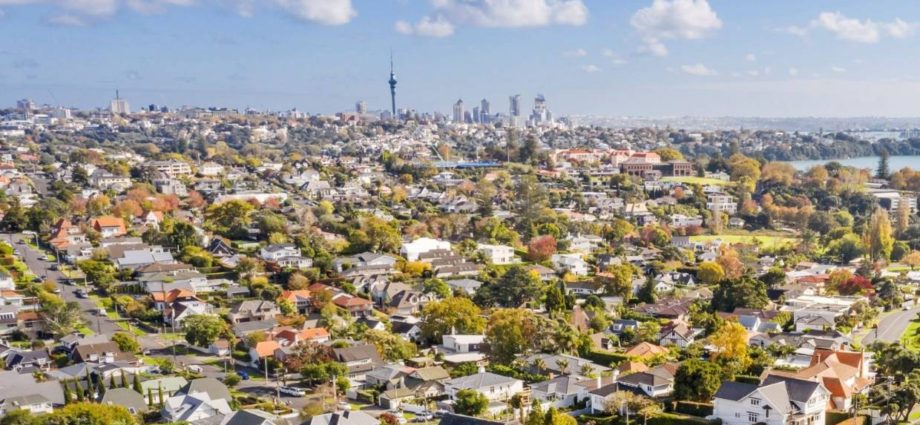PHOTO: CoreLogic unveiled its quarterly property market and economic update in late April. Image – Getty Images
The value of the average New Zealand home plummeted by more than 2 percent in the three months to April after a drop of 0.6 percent in the quarter to March.
According to QV, rising interest rates were piling increasing pressure on the housing market.
QV’s latest house price index shows the national average value of a New Zealand home sits at $1,040,927 – down 2.2 percent over the quarter.
In the Auckland region, the average value was now $1.49 million – falling 3.1 percent over the past quarter. Annual growth was 18.6 percent in March but that dropped to 14.2 percent last month.
“It’s no surprise that the largest declines are occurring in locations that experience the strongest growth over the past couple of years,” QV general manager David Nagel said.
“These markets were the first to become overheated and that makes them more susceptible to a value correction as rising interest rates, tightening credit and affordability concerns start to kick in.”
He said real estate agents have reported declining attendances at open homes and falling auctions clearance rates, showing a balance tilt between buyers and sellers.
“A big part of the three-month value reductions occurred in late March and April so we expect to see a gradual escalation of value declines in the coming months as vendors wanting to sell their properties are forced to meet the market.”
Eleven of the 16 locations QV watches showed a decline in the rate of quarterly value growth from its March statistics. The likes of Marlborough was still steady while Queenstown was the only centre to register a value growth rate increase.
“It’s difficult to see things getting better any time soon with interest rates forecast to rise further in response to inflationary pressure, while net migration is likely to be negative for the rest of the year as the borders open up,” Nagel said.
“Fortunately we have a well-insulated banking sector with LVRs (loan to value restrictions) having been in place for much of the past cycle and with the country at almost full employment. The likelihood of wholesale mortgage defaults is low.”

He added it was likely house listings would continue to outstrip demand in most New Zealand towns.
READ MORE VIA NEWSHUB
MOST POPULAR
 Real estate agents sued for alleged ‘sex-capade’ in clients’ home
Real estate agents sued for alleged ‘sex-capade’ in clients’ home Real estate agent accused of taking rival’s signs
Real estate agent accused of taking rival’s signs Real estate agent who hit motorcyclist pleads guilty
Real estate agent who hit motorcyclist pleads guilty Abandoned land for sale
Abandoned land for sale Real Estate GURU warns real estate agents will lose their jobs | WATCH
Real Estate GURU warns real estate agents will lose their jobs | WATCH How much do U.S. realtors actually make?
How much do U.S. realtors actually make? Mystery surrounds property linked to Kiwi basketball star Steven Adams
Mystery surrounds property linked to Kiwi basketball star Steven Adams Wellington real estate agency sale in court
Wellington real estate agency sale in court Unsustainable housing market poses risk to economy – RBNZ
Unsustainable housing market poses risk to economy – RBNZ ‘Biggest housing bubble in Australian history’
‘Biggest housing bubble in Australian history’
















